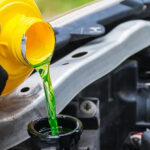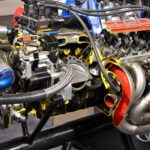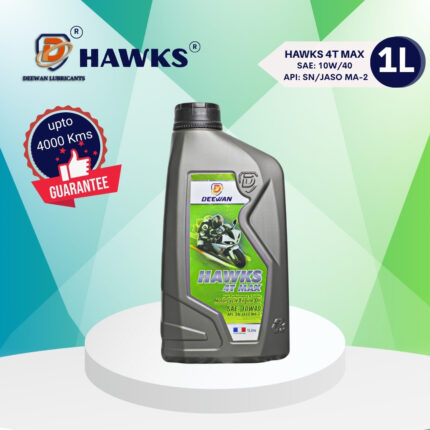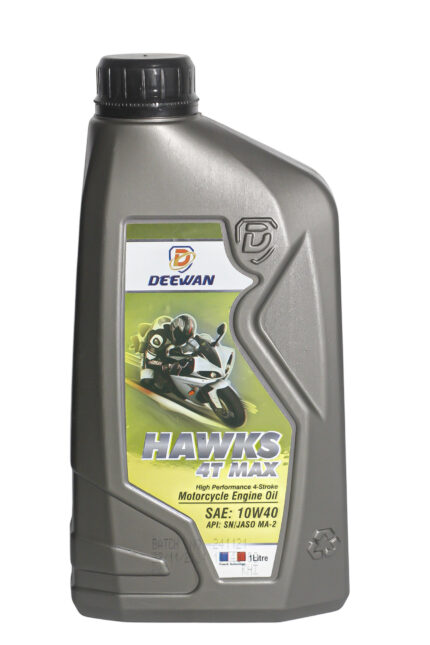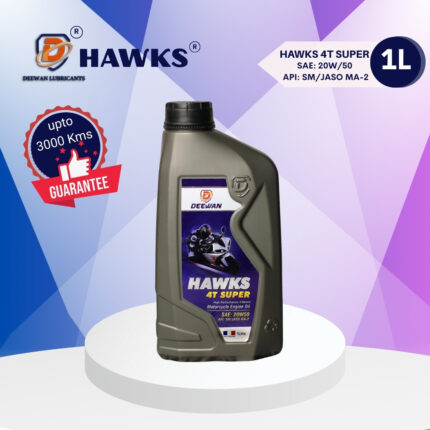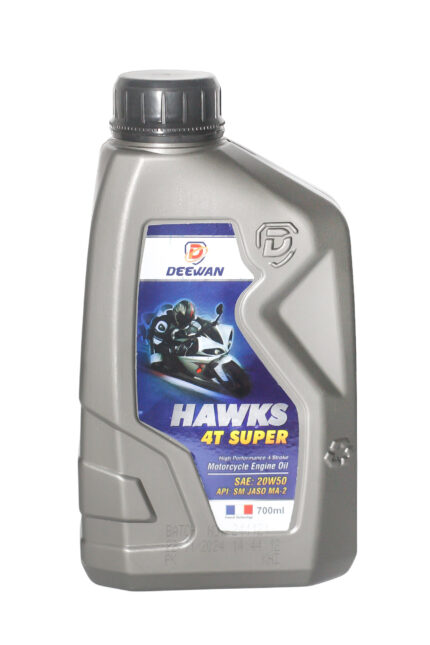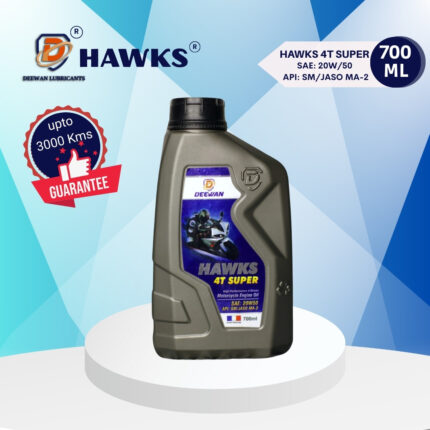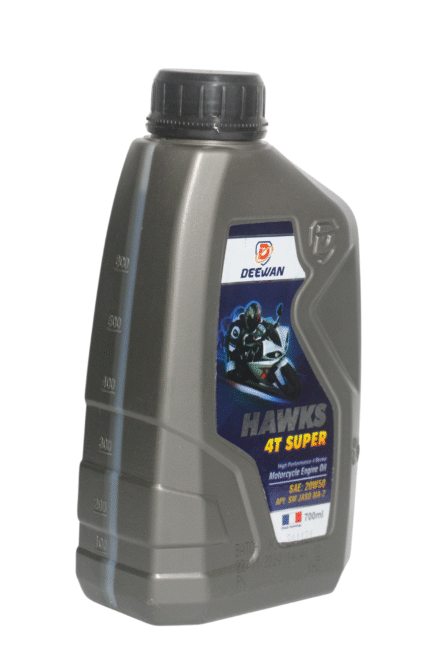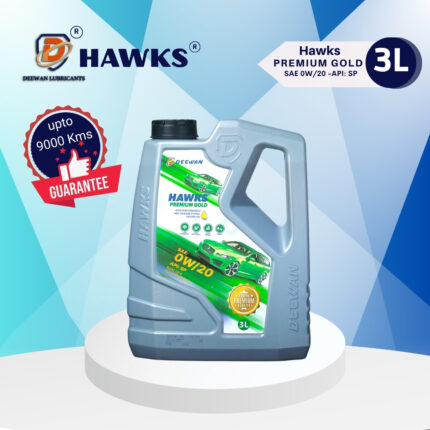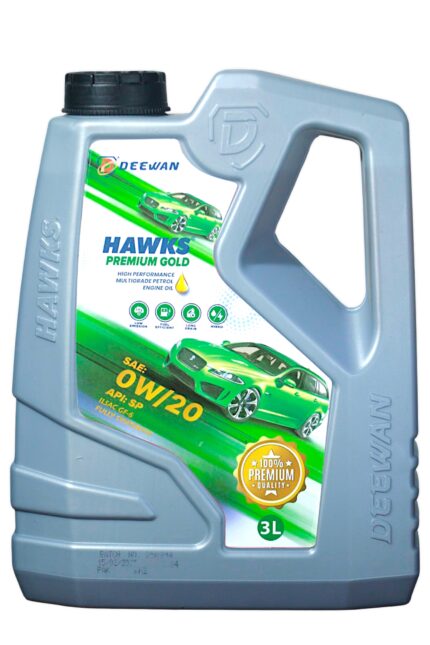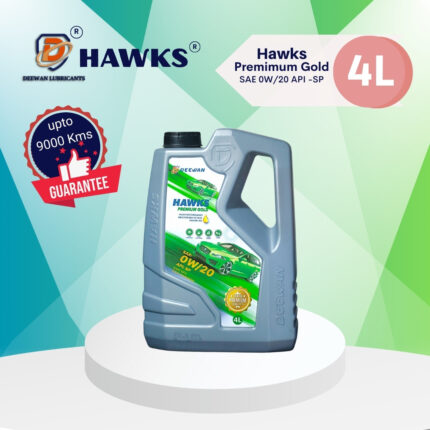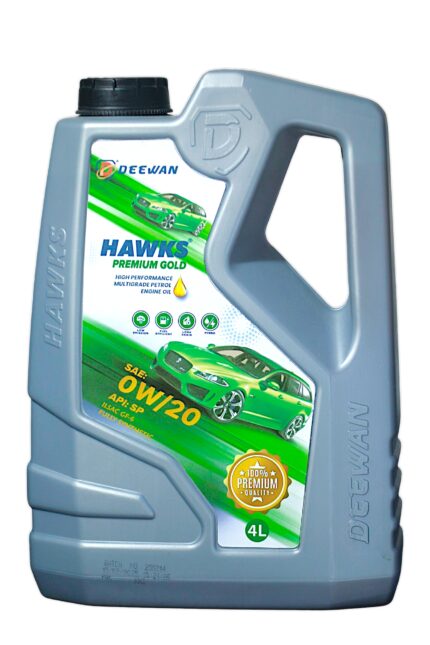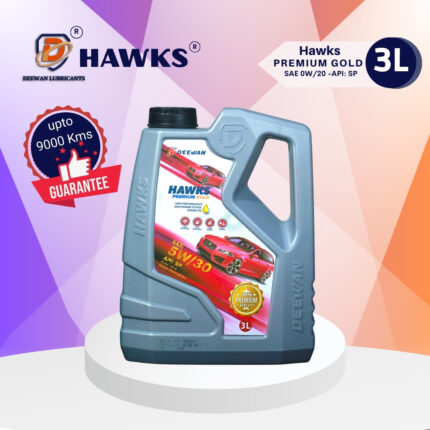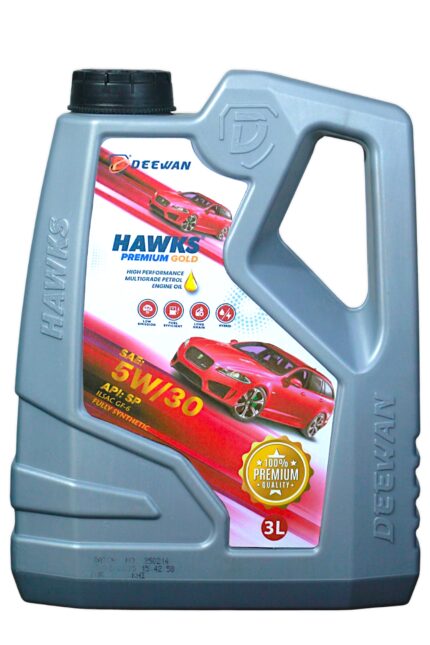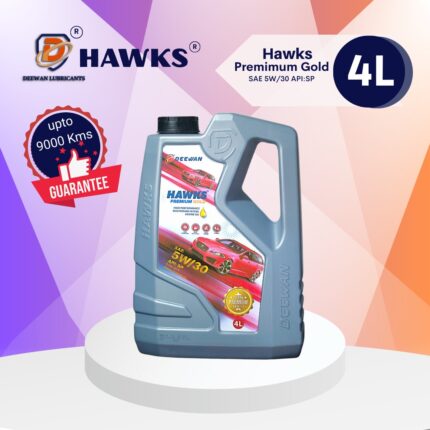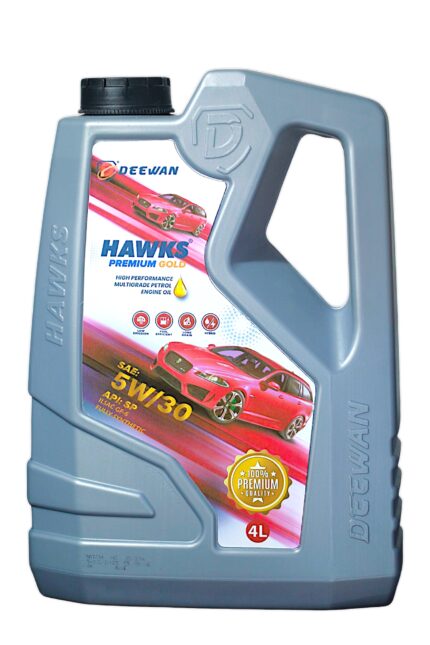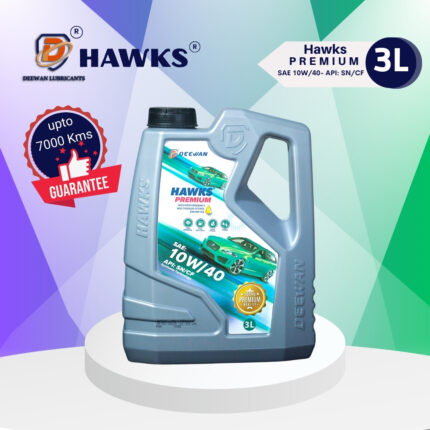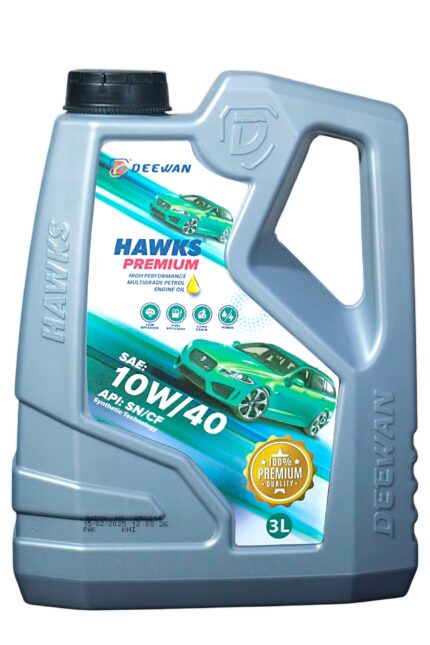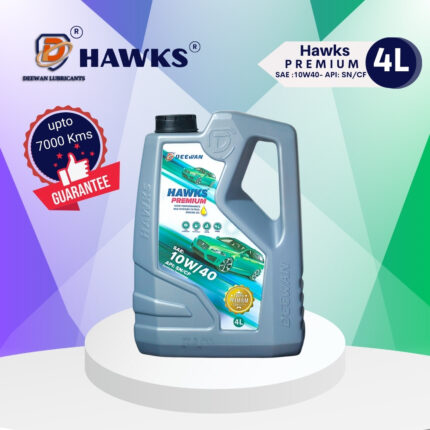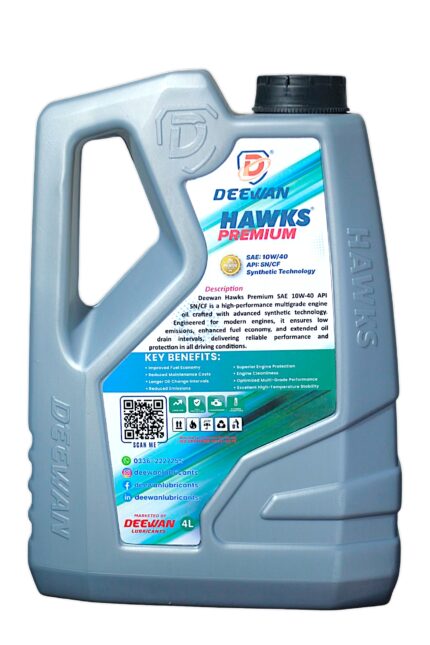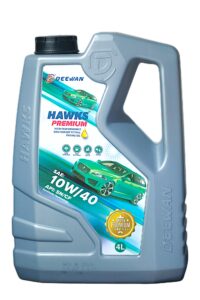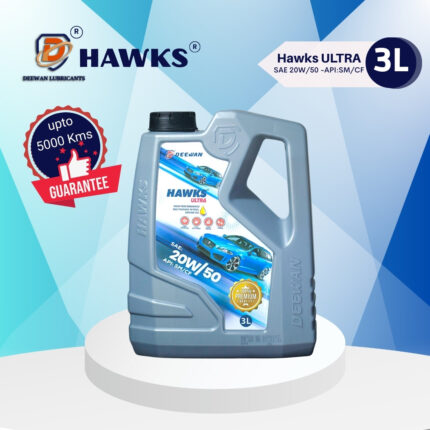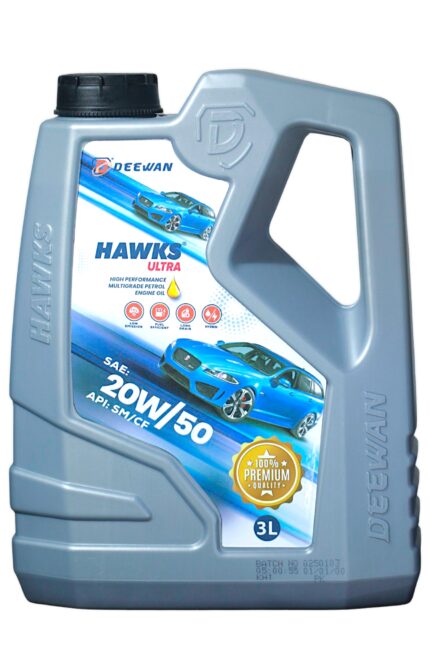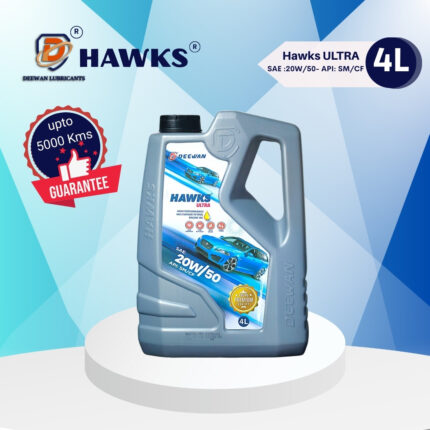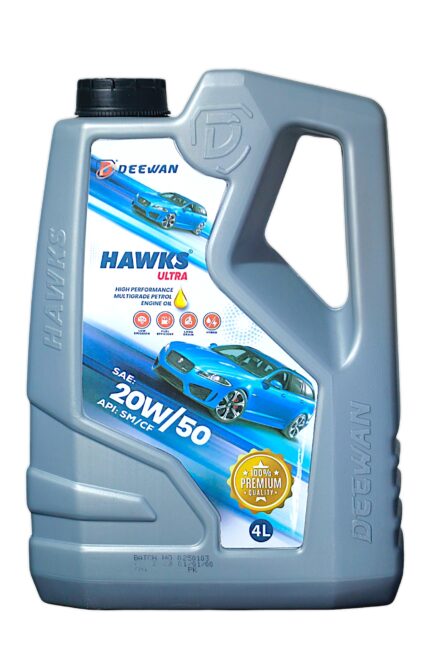A petrol engine (also known as a gasoline engine) is an internal combustion engine that operates using the Otto cycle. Unlike diesel engines, petrol engines rely on spark plugs to ignite the air-fuel mixture within the cylinders.
Deewan Hawks 4T MAX SAE 10W-40 API SN JASO MA2 1L
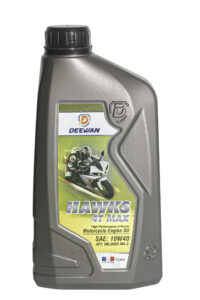 Deewan Hawks 4T Super SAE 10W-40 API SN JASO MA2 is a premium, synthetic engine oil designed for high-performance 4-stroke motorcycles. Engineered to provide superior protection, enhanced fuel efficiency, and exceptional performance under all riding conditions, it meets the latest API SN and JASO MA2 standards, making it perfect for both everyday commuters and high-performance riders.
Deewan Hawks 4T Super SAE 10W-40 API SN JASO MA2 is a premium, synthetic engine oil designed for high-performance 4-stroke motorcycles. Engineered to provide superior protection, enhanced fuel efficiency, and exceptional performance under all riding conditions, it meets the latest API SN and JASO MA2 standards, making it perfect for both everyday commuters and high-performance riders. Deewan Hawks 4T SUPER SAE 20W-50 API SM JASO MA2 1L
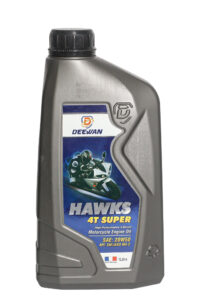 Deewan Hawks 4T Super SAE 20W-50 API SM JASO MA2 is a high-performance synthetic blend engine oil specially formulated for 4-stroke motorcycles. Designed to meet the latest API SM and JASO MA2 standards, it ensures superior protection, enhanced fuel efficiency, smooth clutch performance, and long-lasting engine reliability under a variety of riding conditions.
Deewan Hawks 4T Super SAE 20W-50 API SM JASO MA2 is a high-performance synthetic blend engine oil specially formulated for 4-stroke motorcycles. Designed to meet the latest API SM and JASO MA2 standards, it ensures superior protection, enhanced fuel efficiency, smooth clutch performance, and long-lasting engine reliability under a variety of riding conditions. Deewan Hawks 4T SUPER SAE 20W-50 API SM JASO MA2 700 ML
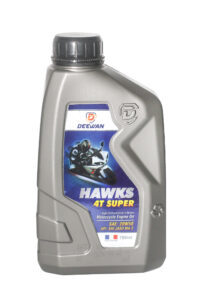 Deewan Hawks 4T Super SAE 20W-50 API SM JASO MA2 is a high-performance synthetic blend engine oil specially formulated for 4-stroke motorcycles. Designed to meet the latest API SM and JASO MA2 standards, it ensures superior protection, enhanced fuel efficiency, smooth clutch performance, and long-lasting engine reliability under a variety of riding conditions.
Deewan Hawks 4T Super SAE 20W-50 API SM JASO MA2 is a high-performance synthetic blend engine oil specially formulated for 4-stroke motorcycles. Designed to meet the latest API SM and JASO MA2 standards, it ensures superior protection, enhanced fuel efficiency, smooth clutch performance, and long-lasting engine reliability under a variety of riding conditions. Deewan Hawks Premium Gold SAE 0W-20 API SP 3L
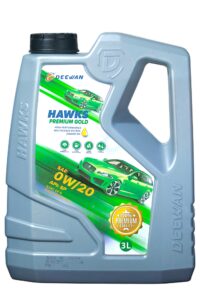 Deewan Hawks Premium Gold SAE 0W-20 API SP is a fully synthetic engine oil designed for superior performance in modern low-emission and hybrid vehicles. Its advanced formulation enhances fuel economy, extends oil drain intervals, and delivers exceptional engine protection. With a high Total Base Number (TBN), it effectively neutralizes acids, ensuring extended engine cleanliness and durability.
Deewan Hawks Premium Gold SAE 0W-20 API SP is a fully synthetic engine oil designed for superior performance in modern low-emission and hybrid vehicles. Its advanced formulation enhances fuel economy, extends oil drain intervals, and delivers exceptional engine protection. With a high Total Base Number (TBN), it effectively neutralizes acids, ensuring extended engine cleanliness and durability. Deewan Hawks Premium Gold SAE 0W-20 API SP 4L
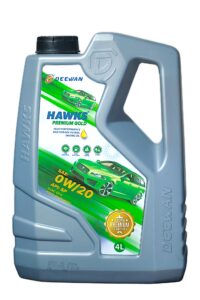 Deewan Hawks Premium Gold SAE 0W-20 API SP is a fully synthetic engine oil designed for superior performance in modern low-emission and hybrid vehicles. Its advanced formulation enhances fuel economy, extends oil drain intervals, and delivers exceptional engine protection. With a high Total Base Number (TBN), it effectively neutralizes acids, ensuring extended engine cleanliness and durability.
Deewan Hawks Premium Gold SAE 0W-20 API SP is a fully synthetic engine oil designed for superior performance in modern low-emission and hybrid vehicles. Its advanced formulation enhances fuel economy, extends oil drain intervals, and delivers exceptional engine protection. With a high Total Base Number (TBN), it effectively neutralizes acids, ensuring extended engine cleanliness and durability. Deewan Hawks Premium Gold SAE 5W-30 API SP 3L
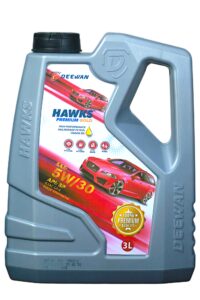 Deewan Hawks Premium Gold SAE 5W-30 API SP is a fully synthetic, high-performance engine oil tailored for modern vehicles, especially low-emission and hybrid engines. Its advanced formulation delivers exceptional fuel economy, extended drain intervals, and robust engine protection, ensuring peak performance in demanding conditions.
Deewan Hawks Premium Gold SAE 5W-30 API SP is a fully synthetic, high-performance engine oil tailored for modern vehicles, especially low-emission and hybrid engines. Its advanced formulation delivers exceptional fuel economy, extended drain intervals, and robust engine protection, ensuring peak performance in demanding conditions. Deewan Hawks Premium Gold SAE 5W-30 API SP 4L
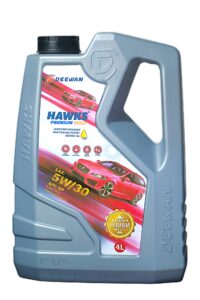 Deewan Hawks Premium Gold SAE 5W-30 API SP is a fully synthetic, high-performance engine oil tailored for modern vehicles, especially low-emission and hybrid engines. Its advanced formulation delivers exceptional fuel economy, extended drain intervals, and robust engine protection, ensuring peak performance in demanding conditions.
Deewan Hawks Premium Gold SAE 5W-30 API SP is a fully synthetic, high-performance engine oil tailored for modern vehicles, especially low-emission and hybrid engines. Its advanced formulation delivers exceptional fuel economy, extended drain intervals, and robust engine protection, ensuring peak performance in demanding conditions. Deewan Hawks Premium SAE 10W-40 API SN/CF 3 LITRE
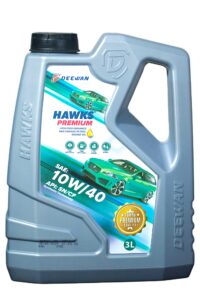 Deewan Hawks Premium SAE 10W-40 API SN/CF is a high-performance multi-grade engine oil crafted with advanced synthetic technology. Engineered for modern engines, it ensures low emissions, enhanced fuel economy, and extended oil drain intervals, delivering reliable performance and protection in all driving conditions.
Deewan Hawks Premium SAE 10W-40 API SN/CF is a high-performance multi-grade engine oil crafted with advanced synthetic technology. Engineered for modern engines, it ensures low emissions, enhanced fuel economy, and extended oil drain intervals, delivering reliable performance and protection in all driving conditions. Deewan Hawks Premium SAE 10W-40 API SN/CF 4 LITRE
Deewan Hawks Premium SAE 10W-40 API SN/CF is a high-performance multi-grade engine oil crafted with advanced synthetic technology. Engineered for modern engines, it ensures low emissions, enhanced fuel economy, and extended oil drain intervals, delivering reliable performance and protection in all driving conditions.
Deewan Hawks ULTRA SAE 20W-50 API SM/CF 3L
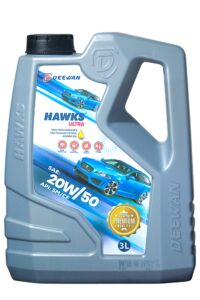 Deewan Hawks ULTRA SAE 20W-50 API SM/CF is a high-quality multi-grade engine oil designed to deliver exceptional performance and protection for a wide range of engines. With advanced additive technology, it ensures low emissions, optimized fuel economy, and long drain intervals, making it the ideal choice for high-demand driving conditions.
Deewan Hawks ULTRA SAE 20W-50 API SM/CF is a high-quality multi-grade engine oil designed to deliver exceptional performance and protection for a wide range of engines. With advanced additive technology, it ensures low emissions, optimized fuel economy, and long drain intervals, making it the ideal choice for high-demand driving conditions. Deewan Hawks Ultra SAE 20W-50 API SM/CF 4L
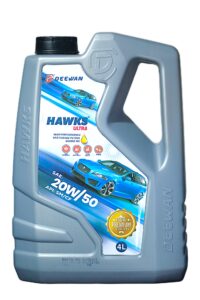 Deewan Hawks ULTRA SAE 20W-50 API SM/CF is a high-quality multi-grade engine oil designed to deliver exceptional performance and protection for a wide range of engines. With advanced additive technology, it ensures low emissions, optimized fuel economy, and long drain intervals, making it the ideal choice for high-demand driving conditions.
Deewan Hawks ULTRA SAE 20W-50 API SM/CF is a high-quality multi-grade engine oil designed to deliver exceptional performance and protection for a wide range of engines. With advanced additive technology, it ensures low emissions, optimized fuel economy, and long drain intervals, making it the ideal choice for high-demand driving conditions. Key Characteristics of Petrol Engines:
- Spark Ignition: Petrol engines use spark plugs to ignite the air-fuel mixture. The spark timing is controlled to ensure efficient combustion.
- Smooth Operation: Petrol engines typically run smoother and quieter than diesel engines. They are designed to operate at higher RPMs, providing a more refined driving experience.
- Power Output: These engines often provide higher power output per unit of displacement compared to diesel engines, making them suitable for performance-oriented vehicles.
- Fuel Type: They use petrol (gasoline), which is more volatile than diesel. Petrol engines tend to start more easily in cold conditions.
- Emissions: Modern petrol engines are equipped with technologies like catalytic converters to reduce harmful emissions. However, they generally produce more carbon dioxide (CO2) than diesel engines.
- Maintenance: Petrol engines often require more frequent maintenance compared to diesel engines, but they tend to be lighter and more compact.
Applications:
Petrol engines are widely used in:
- Automotive: Most passenger cars and motorcycles.
- Power Tools: Lawn mowers, chainsaws, and other small equipment.
- Marine: Smaller boats and personal watercraft.
Advantages:
- Performance: Petrol engines offer quick acceleration and higher RPMs, making them ideal for sporty driving.
- Less Noise and Vibration: They generally produce less noise and vibration compared to diesel engines.
- Cold Start: Easier to start in cold weather due to the volatility of petrol.
Overall, petrol engines are known for their performance and smooth operation, making them a popular choice for passenger vehicles and small machinery.


